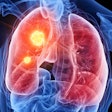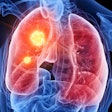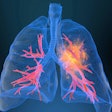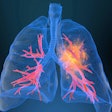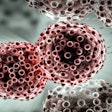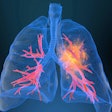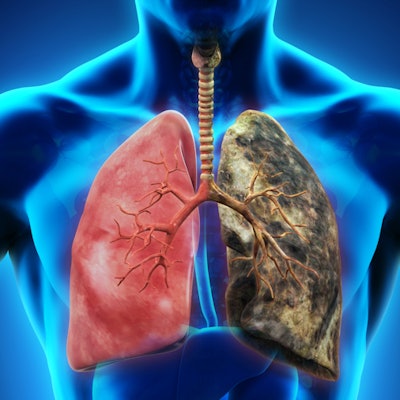
Molecular testing is greatly underused in patients with non-small cell lung cancer (NSCLC) for a variety of reasons, including cost, concerns about quality, turnaround time, and lack of awareness, according to a global survey published in the Journal of Thoracic Oncology on May 20.
The survey was conducted anonymously and online by the International Association for the Study of Lung Cancer (IASLC). It included medical oncologists ordering tests, pathologists making the interpretations, and nonclinical scientists, with questions adapted based on specialty and role.
Respondents were asked about access and barriers to molecular testing, which is well-established in NSCLC, as there are many mutations that can be targeted with drug treatment -- notably KRAS and EGFR, but also including ALK, BRAF, MEK, and RET -- so diagnostics have a very big impact on patient management and outcomes in this tumor type and are recommended in professional guidelines.
The survey, which was conducted at the end of 2018 and received 2,537 responses, also included questions about interpretations, quality, and tissue acquisition. In a statement, the IASLC noted that more than six of 10 respondents (61%) reported that molecular testing rates are less than 50% in their country, with the lowest rates reported in Latin America.
"Nearly four in 10 surveyed (39%) were not satisfied with the conditions of molecular testing in their country, citing concerns with the time it takes to receive results, the reliability of samples, and trouble understanding results," the IASCLC noted.
The biggest barrier to molecular testing was cost, followed by quality and standards, turnaround time, access, and lack of awareness, reported University of Memphis epidemiologist Matthew Smelzer, PhD, and colleagues. Despite recommendations in international guidelines, "adoption of molecular testing for lung cancer is relatively low across the world," wrote the research team led by Smelzer, who is an IASLC committee member.
Furthermore, respondents who perform and interpret assays commonly reported being dissatisfied, for reasons that included difficulty understanding results and quality of samples, the authors noted.
"Despite concerns regarding quality of testing, 47% in the performing/interpreting track stated there is no policy or strategy to improve quality in their country," Smelzer and colleagues wrote.
Missing out on survival benefit
The survey was conducted to determine the frequency of testing across the world, as the risk of death is "substantially reduced" when gene alterations are identified and targeted therapy is delivered, the authors wrote.
Respondents practiced in 102 countries with the following regional breakdowns:
- Asia (52%)
- Europe (19%)
- U.S. and Canada (11%)
- Rest of world (7%)
Of the total, 44% of participants were from developed countries and the rest practiced in developing nations. While testing for EGFR and ALK was commonly done in every region, rates of screening for other mutations, like ROS1 and BRAF, were very low in some parts of the world.
The results are bad news for some 2 million globally who have lung cancer, most of whom have the NSCLC type.
"Patient selection for molecularly targeted therapies depends on accurate and timely identification of actionable genomic alterations," Smelzer and colleagues wrote.
The authors recommended educational outreach to improve consistency and awareness of evidence-based practice around the world, and greater use of liquid biopsy to boost access and turnaround, among other solutions.
"We found that many providers do not have access to molecular testing within their own institutions," Smelzer and colleagues advised. "Since the majority of the testing occurs at external laboratories, initiatives should focus on assisting laboratories in the development and utilization of multiplex assays, and in turn, educating treating physicians on the enhanced laboratory capabilities."
Testing 'fails to fulfill promise'
The survey results are very clear and universal -- molecular marker testing is failing to fulfill its promise in nearly all healthcare systems due to practical barriers on multiple fronts, commented Dr. Howard (Jack) West, an associate clinical professor in medical oncology and a lung cancer specialist at the City of Hope Cancer Center in the Los Angeles area. West was not involved in the IASLC study.
The biggest challenges, in his view, are the following:
- Low awareness among oncologists about the compelling value of testing and which targets to seek
- Insufficient tissue for lab professionals to test
- Frustratingly slow turnaround times
- High cost of testing
- Reports that are difficult to understand and do not help clinicians identify a course of action
- Potential hurdles to obtaining the optimal treatment for specific targets
"To me, these results underscore a need to dedicate far more focus to the many moving parts that lead to the final step of having a patient with a driver mutation start on a targeted therapy," he commented by email to LabPulse.com.
Nearly all research is focused on identifying new targets and promising agents to treat them. These studies are typically conducted in tertiary or quaternary referral centers with processes and resources inaccessible to rank and file clinicians, he noted.
"But precision medicine doesn't end with identifying a therapy to treat a target -- it merely begins there," West said. "It is critical for there to be systems in place that make it possible to execute on testing, identifying the key targets, and delivering the needed treatments on a broad scale."








